No matter where you look, China is swamped with problems. The economy is a gigantic bubble and political infighting is paralyzing the regime.
To some, China is still an enigma and most outside of China only get a glimpse of what is happening in this gigantic nation through reports or official statistics. Not so for Fraser Howie: He spent several years working in China at the turn of the millennium and has written extensively about the topic.
His most recent book, “Red Capitalism” was named book of the year by The Economist and one of the first books to expose the debt machine within the Chinese banking system as well as the risks of the debt-filled growth model.
“The problems of China are chronic problems, they are not acute problems. This isn’t a Greece or a Dubai where they need to refinance in a currency they cannot print. The problems China has are long-term structural issues of a model that has fundamentally run its course,” said Howie.
At the heart of these chronic problems is the issue of overinvestment. As a percentage of GDP, gross capital formation has been close to 50 percent for the past decade, according to the World Bank.
Too Much Investment
As a comparison, the United States’ investment in capital goods, such as factories, houses, and roads has been closer to 20 precent of GDP.
Yes, as a developing country China needs to build up infrastructure, said Howie, but there needs to be a return on that investment as well.
“They fundamentally cannot make bad projects good projects. If you built an apartment block in the middle of the desert and no one wanted to live there, you are going to lose money on your project. Even if you move people there, you are going to attract them by either subsidies or cheap rents, so therefore your financial return is going to be lower,” he said.
On a normal project, an investor, whether it is a company or the government could make a 10 percent return. If you build things nobody needs, that return goes to zero or even negative according to Howie.
At one point, economic actors realize there is no return potential and stop investing and spending, and the whole house of cards falls apart.
“What you are seeing is inventories building up across a lot of sectors. So you see gross overcapacity in a whole list of sectors and a whole list of commodities and you think: This looks like a horrible picture,” said Howie.
Howie also remarks there is a significant disconnect between official numbers and what is happening on the ground. Yes, the economy is bound to grow at 6.8 percent in 2015; however, most voices coming out of China say everything has slowed down significantly.
In light of all this trouble, the Chinese regime is trying to keep the people happy at all costs by giving them money: the only source of legitimacy of the CCP.
“The discontent is partly addressed by rising wages. Whenever possible, the regime is trying to drive up wages or limit prices, which means it’s difficult for businesses to make profits.” But even higher wages cannot buy clean air or untainted food, said Howie. He even said mockingly that you can only drive your new luxury car every second day because of regulations.
On the other hand, human rights and freedom of speech are suppressed to keep the party line, which Howie said is counterproductive:
“So you have this iron first, which is clamping down on any level of plurality. If there was a bit more freedom in the civic space then they would be in a far better position to respond to some of the stress. And be able to cope with the slowing growth.”
Power Politics
If people think the regime can fix all these problems, Howie begs to differ.
“People think President Xi Jinping will allow a clear reform push, that he is actually going to really push through a lot of these third plenum pledges for the market to take the first role and the state the second role. Today there is very little evidence of that. There is hope rather than concrete evidence of it,” he said.
While Xi is clamping down on corruption, he has also gone about systematically consolidating his power over the Party, particularly in the face of the brutal factional politics that almost derailed his rise to head of the regime in 2012. The relentless purge of this political faction—closely associated with former Party leader Jiang Zemin—has not come along with real reform of the role of the state in the economy, and has been accompanied by a broad and harsh ideological clampdown.
“Wherever you look, around Xi, there are hard lines everywhere. There is a hard line taken in Tibet; there is a hard line taken in Jinjiang [South China, the locality of a recent labor dispute]; there is a hard line taken in Hong Kong,” he said.
As to what might happen, it’s hard to predict: “If Xi keeps the pressure on, people will just not approve anything for fear of being implicated in corruption. You need systems that are better for accountability and transparency that we are not seeing. Xi hasn’t shown he is changing the model in anyway,” Howie said.
China Is Not the World’s Largest Economy
In his interview series with the Epoch Times, Howie also does away with one common misperception. The International Monetary Fund (IMF) in 2014 put out the notion that China is now the world’s largest economy according to an obscure economic concept called purchasing power parity (PPP).
Because exchange rates are influenced by factors other than trade or domestic production and consumption (capital flows and speculation for example), they distort the actual consumption and production picture of a local economy—the true reflection of a country’s wealth and economic power.
According to Howie, this model is severely flawed in China’s case: “There is a huge assumption about the purchasing power parity principle these people use and it is usually not stated. It’s underlying the whole principle: The only thing that is different in the economies about the goods and services within is the price and not the quality.”
He said the quality of products and services is vastly inferior to the ones in the United States, even Chinese exports.
Anybody who has ever visited China will agree about this inferiority, with the notable exceptions of goods and services provided by Western companies in China, mostly sold at the same prices.
Manhattan Parity
“You can get a haircut in Beijing for 5 yuan (US$0.80) or 10 yuan (US$1.60) yet in New York it’s $20. Well actually on Fifth Avenue it’s $75 and in Brooklyn its $25. So are you going to have purchasing power parity between Brooklyn and Manhattan as well?” Howie said.
He thinks Chinese goods and services are worth about 50 percent of the U.S. standard, especially the aftersales service: “Providing a basic service, generally they can do that. If there is a fault, the aftercare service or the follow up is dubious. I use some Chinese software products and the coding is poor. And that leads to poor aftersales service.”
Overall Howie doubts China’s economic leadership, even if the economy was bigger. He said there is practically no innovation coming out of China and the country doesn’t influence other economies positively except for providing cheap goods for Western markets.
“The United States is continuing to be a global leader in many areas and things developed in America are copied elsewhere or adopted elsewhere. There is very little evidence that Chinese companies are succeeding in building networks and success outside of China or Chinese communities,” he says.
Instead the whole economy and big state run industries are large, just because they serve a billion plus people. Virtually all per capital statistics, including the ones adjusted for PPP, are much worse than those of Western Europe or the United States.
“At one point the Chinese economy will be bigger than the United States, so what. For 30 years Japan was the second largest economy and yet it was largely stagnant and didn’t impact the rest of the world. Having a big economy? You are simply summing the activity of 1.3 billion people,” Howie concludes.
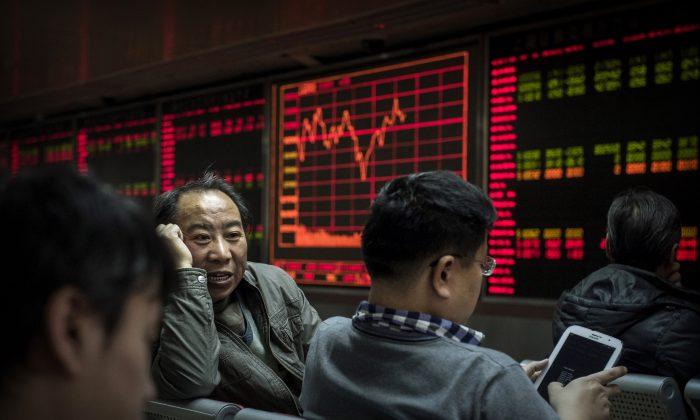

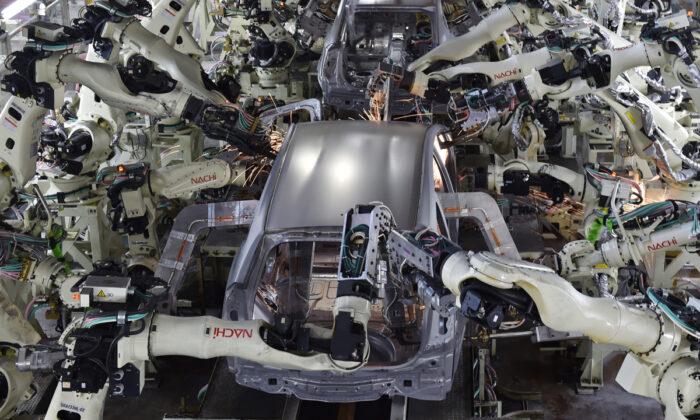
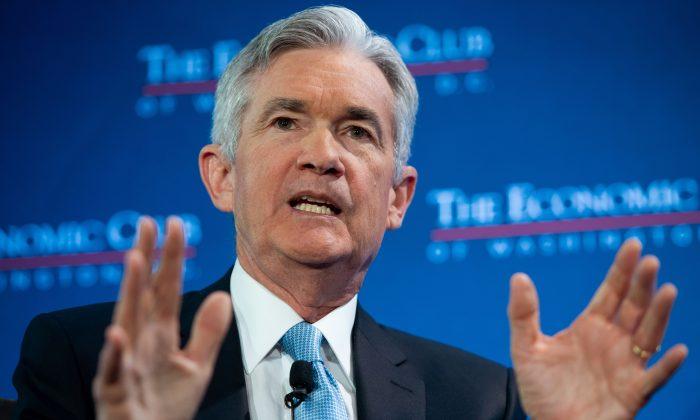
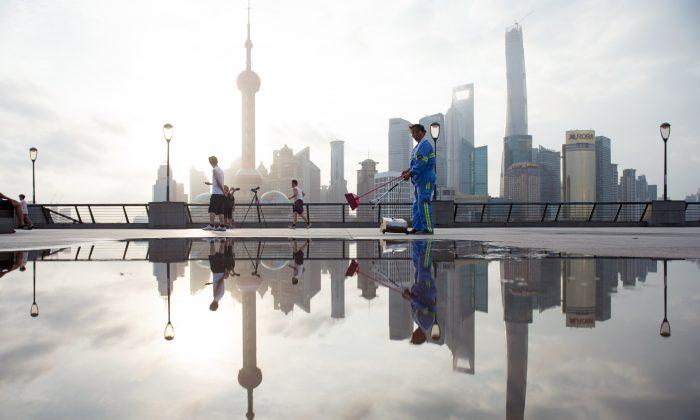
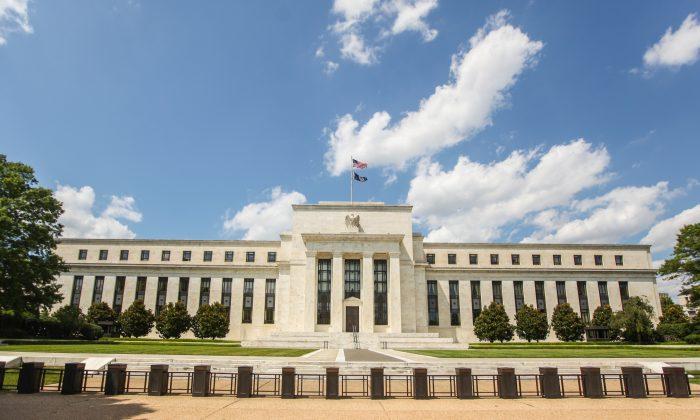
Friends Read Free